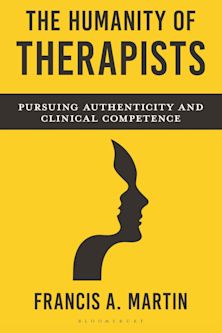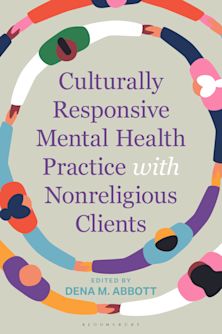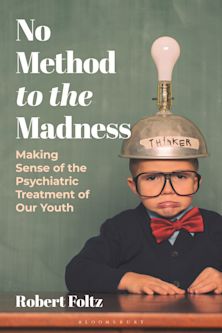- Home
- ACADEMIC
- Psychology
- Psychotherapy & Counselling
- The Praeger Handbook on Stress and Coping
The Praeger Handbook on Stress and Coping
[2 volumes]
The Praeger Handbook on Stress and Coping
[2 volumes]
You must sign in to add this item to your wishlist. Please sign in or create an account
Description
One of the most famed figures in the psychology field worldwide, the late Richard Lazarus worked with coeditors Alan Monat and Gretchen Reevy to fashion this anthology focused on one area of psychology nearly every person can relate to—stress. A team of researchers presents current and classic findings on the mental and physical effects of stress, as well as the means to manage and cope with everyday stress as well as extreme stress. Included are chapters by Lance Armstrong on coping with cancer and a chapter by Dean Ornish explaining how stress—self-imposed or not—affects the heart.
Today factors ranging from war, terrorism, and disaster to discrimination, divorce, and daily job struggles make all of us painfully aware of stress. This set gives readers across backgrounds a solid introduction to classic and contemporary thought in a field so relevant to successful living. These volumes will also be of interest to researchers, students, and scholars in psychology, health science, psychiatry, nursing, and physical education.
Table of Contents
Abbreviations
Foreword
Preface
Acknowledgments
Introduction
Part I: The Stress Concept
Introduction to The Stress Concept"
Chapter 1: Stress: A Brief History
The Twentieth Century: From the 1950s to Richard Lazarus
Chapter 2: Stress and Emotion: A New Synthesis
Stress and Emotion
Chapter 3: Work Stress
Macro-Level Work Stressors
Chapter 4: The Wisdom of the Receptors: Neuropeptides, the Emotions, and Bodymind
Chapter 5: Allostatic Load: When Protection Gives Way to Damage
Part II: Stress and Illness
Introduction to Stress and Illness
Chapter 6: Dr. Dean Ornishs Program for Reversing Heart Disease
Chapter 7: Racial Differences in Attitudes Regarding Cardiovascular Disease Prevention and Treatment
Chapter 8: Stress : Myth, Theory and Research
Stress : Health and Illness
Chapter 9: The Noonday Demon: An Atlas of Depression
Chapter 10: Why Zebras Dont Get Ulcers
Stress, Metabolism, and Liquidating Your Assets
Chapter 11: Psychological Factors and Immunity in HIV Infection
Stress, Coping, Social Support, and Intervention Outcomes
Part III: Posttraumatic Stress
Introduction to Posttraumatic Stress
Chapter 12: Posttraumatic Stress Disorder and Terrorism
Chapter 13: Neuropsychological Processes in Posttraumatic Stress Disorder
Chapter 14: Growing Up Under the Gun: Children and Adolescents
Coping with Violent Neighborhoods
Glossary
Index
Contributors
Volume II
:Figures and Tables
Abbreviations
Foreword
Preface
Acknowledgments
Introduction
Part IV: The Coping Concept
Introduction to The Coping Concept
Chapter 16: What Does It Mean to Cope?
Chapter 17: Cultivating Optimism in Childhood and Adolescence
Chapter 18: The Story of Hardiness: Twenty Years of Theorizing, Research, and Practice
Chapter 19: Racing Against Your Heart
Chapter 20: Sex-related Differences in the Social SupportStress Relationship
Part V: Examples of Coping
Introduction to Examples of Coping
Chapter 21: Its Not About the Bike: My Journey Back to Life
Chapter 22: Experiences in Early Stage Alzheimers Disease: Understanding the Paradox of Acceptance and Denial
Chapter 23: Coping with Test Situations: Resources, Strategies, and Adaptational Outcomes
Chapter 24: The Black Scholar Interviews Maya Angelou
Part VI: Stress Management
Introduction to Stress Management
Chapter 25: Massage Therapy Effects
Chapter 26: What We Really Know about Mindfulness-based Stress Reduction
Chapter 27: Yoga for Stress Reduction and Injury Prevention at Work
Chapter 28: Psychotherapy : A Cognitive Perspective
Chapter 29: Stress and Diet
Chapter 30: Exercise Treatment for Major Depression: Maintenance of Therapeutic Benefit
Chapter 31: Attitudes and Beliefs about 12-Step Groups among Addiction Treatment Clients and Clinicians: Identifying Obstacles to Participation
Glossary
Index
Contributors
Product details
| Published | Mar 30 2007 |
|---|---|
| Format | Hardback - Pack |
| Edition | 1st |
| Extent | 664 |
| ISBN | 9780275991975 |
| Imprint | Praeger |
| Dimensions | Not specified |
| Publisher | Bloomsbury Publishing |
About the contributors
Reviews
-
Stress is a phenomenon that is intuitively grasped by most people, yet its scientific construct and clinical applications are surprisingly unsettled while also quite promising, as revealed in this valuable anthology. The editors-Monat, noted scholar and researcher Richard S. Lazarus, and Gretchen Reevy have provided a diverse collection of previously published articles on various aspects of the subject, including research reviews, theoretical discussions, and personal narratives (e.g., Lance Armstrong on battling cancer). The book is organized into five sections covering a description of the stress concept and its physiological and psychological manifestations, stress and illness, post-traumatic stress disorder, and stress management and coping styles. While most of the well-chosen articles are scholarly, some, particularly those on handling stress, could be useful to self-help-minded general readers….As an authoritative, wide-ranging, and timely compilation on a significant contemporary problem, this work is recommended for academic libraries and allied health collections.
Library Journal
-
This handbook is recommended for all libraries (especially academic) as well as professionals in related fields.
American Reference Books Annual
-
[A] very comprehensive, informative, intellectually challenging, research-based, and scholarly encyclopedia on stress and coping. It gives readers solid historical and classic information, as well as contemporary thought and theories in the field of stress, that will be of significant value for researchers, students, scholars, and professionals in the fields of psychology, health sciences, medicine, pharmacology, psychiatry, nursing, and physical education….The editors' and contributors' skill in writing, their encyclopedic knowledge, clarity of thought, professional integrity, commitment to hard work, and team spirit shine in all 601 pages of this most comprehensive handbook….an excellent text and essential reading material for doctoral students, researchers, scholars, and professionals.
PsycCRITIQUES
-
In 31 narrative and research essays contributors ranging from academics to athletes and counselors to physicians address research on the mental and physical effects of stress as well as techniques to use to control or at least cope with stress. They describe the concept of stress and how it developed from the 1950s onward, linkages between stress and emotion, work stress, and neuropeptides' effects on the mind-body connection. Essays on stress and illness cover allostatic load, heart disease and racial differences in attitudes about it, depression, the role of metabolism and coping with HIV, while those on post-traumatic stress cover epidemiological studies, terrorism, neuropsychological processes and violent environments. The focus then shifts to coping, including cultivating optimism, developing a holistic coping system, caring for health and managing stress through group work, diet and exercise. Co-editors include the late expert Richard S. Lazarus.
SciTech Book News



































